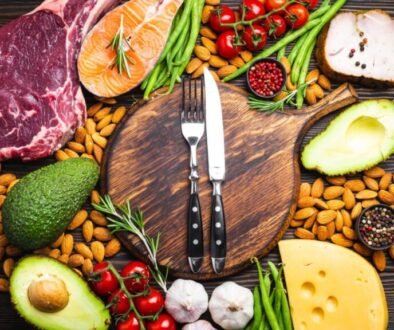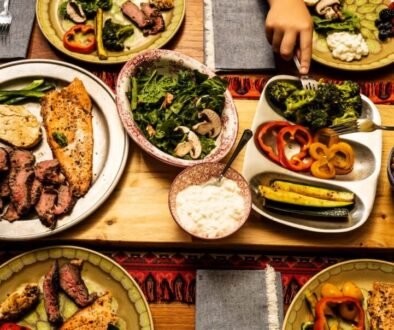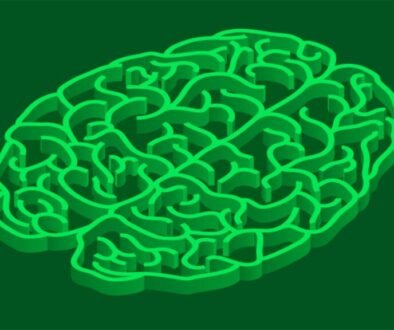10 breakfast errors that could block weight loss
[ad_1]
They say that breakfast is the most important meal of the day, and this can be true in terms of weight loss. What you eat in the morning can set the tone for your energy levels, your metabolism and your hunger throughout the day.
If you are trying to lose weight, a well-balanced breakfast can help regulate your appetite, maintain your muscles and prevent overeating later. However, errors like jumping breakfast or choosing bad foods can prevent progress.
Research on breakfast and weight loss is mixed. Some studies suggest jumping breakfast leads to a slightly lower weight and the calorie intake. Other studies say that jumping can lead to hunger and burn fewer calories later, especially when you eat more calories later.
If breakfast makes you eat too much, especially at night, it can be useful to reassess. A review of several studies has revealed that people who eat late are more likely to be overweight or obese and have lower metabolic health, even when they consume calories similar to the first eaters.
Coffee loaded with cream, syrup and garnishes such as brown butter or glitter can quickly derail your weight loss goals.
A portion of 8 ounces of flavored latte with all the fixings in a coffee chain can have about 24 grams of sugar. Too much sugar added is linked to weight gain, type 2 diabetes and heart disease. Food guidelines for Americans recommend keeping sugars added below 10% of daily calories, which means more than 50 grams (200 calories) on a 2000 calories diet.
If you have breakfast but you are hungry long before lunch, your meal may lack fiber. The fibers, found in fruits, vegetables and whole grains, support digestion, lowers cholesterol and help you feel full longer, which can help the fight against weight.
Instead of low fiber options such as sweet cereals or pastries, opt for alternatives rich in fiber such as whole grain cereals, whole wheat toast or oatmeal. Adding fruit to the side or mixing it in your cereals increases the fiber content even more.
Protein is important for weight management because it helps you feel full longer. The protein is broken down into amino acids and peptides, which trigger hormones that regulate your appetite. Eating enough protein for breakfast or any meal can help control your hunger and reduce your calorie intake.
Protein-rich breakfast options include eggs, Greek yogurt, whole grains like oats and waffles or pancakes rich in protein. You can increase the protein content by adding a glass of milk, such as cows, soy or pea milk.
Do not limit your protein choices to typical breakfast food such as eggs and yogurt. A cup of cottage cheese is another simple protein option, and you can add fibers by mixing chopped fruits. If you make toast, add the avocado and the remaining tuna or chicken for additional proteins.
Spread the nut butter on the toast, waffles and pancakes for a boost of plant proteins. Legumes such as beans, peas and lenses are also large sources of protein.
Snacks such as fries, cookies and donuts can be fast and tasty, but they mainly contain empty calories, fats and added sugar. Because they have little or no protein or fiber, they will not keep you full, which makes you more likely to eat too much.
Saping fat at breakfast can hinder weight loss because fats help you feel full by triggering satiety hormones (fullness) that slow down digestion. Fat also helps your body absorb certain vitamins.
The inclusion of healthy fats such as avocado, nuts, seeds or olive oil not only helps control appetite, but also supports heart health, making it a large part of a balanced breakfast for weight management.
You can have breakfast regularly and include healthy foods such as fruit, yogurt and eggs. However, while a fruit provides fibers and vitamins, it probably does not fill out alone alone. If you don't feel satisfied after breakfast, you can eat too much later or graze on snacks that provide few nutrients.
Connect yourself to your body signals and ask yourself if you are really full. You might feel more satisfied with two eggs instead of one or combining fruit with nuts and yogurt or cereals.
If you wait too long to have breakfast, you can eat too much later or eat the rest of your meals and snacks later in the day, even when you stretch at the end of the evening. Remember that eating late can increase the risk of gaining weight.
Research shows that people who eat earlier have to lose more weight, even if they eat the same amount of food. The synchronization of meals affects how your body uses energy and eating late can eliminate the natural rhythms of your body.
Drinking enough water is essential for overall health. It helps regulate body temperature, lubricate joints and prevent dehydration, which can cause fatigue, mood changes and constipation.
Research shows that drinking water before meals can help weight loss by promoting fullness and reducing calorie intake. Water also slightly stimulates metabolism and increases fat combustion, making it a precious tool for weight management.
Staying hydrated can also prevent you from confusing the thirst for hunger, helping you to avoid unnecessary snacks.
Having smart breakfast choices can set the tone for the rest of the day. It is important to avoid highly transformed snacks, to eat enough protein and fiber, to spend time wisely and to remain hydrated.
Small changes – such as choosing nutrients, eating earlier and drinking water in the morning – can help regulate appetite, stimulate metabolism and maintain stable energy levels.
[ad_2]




